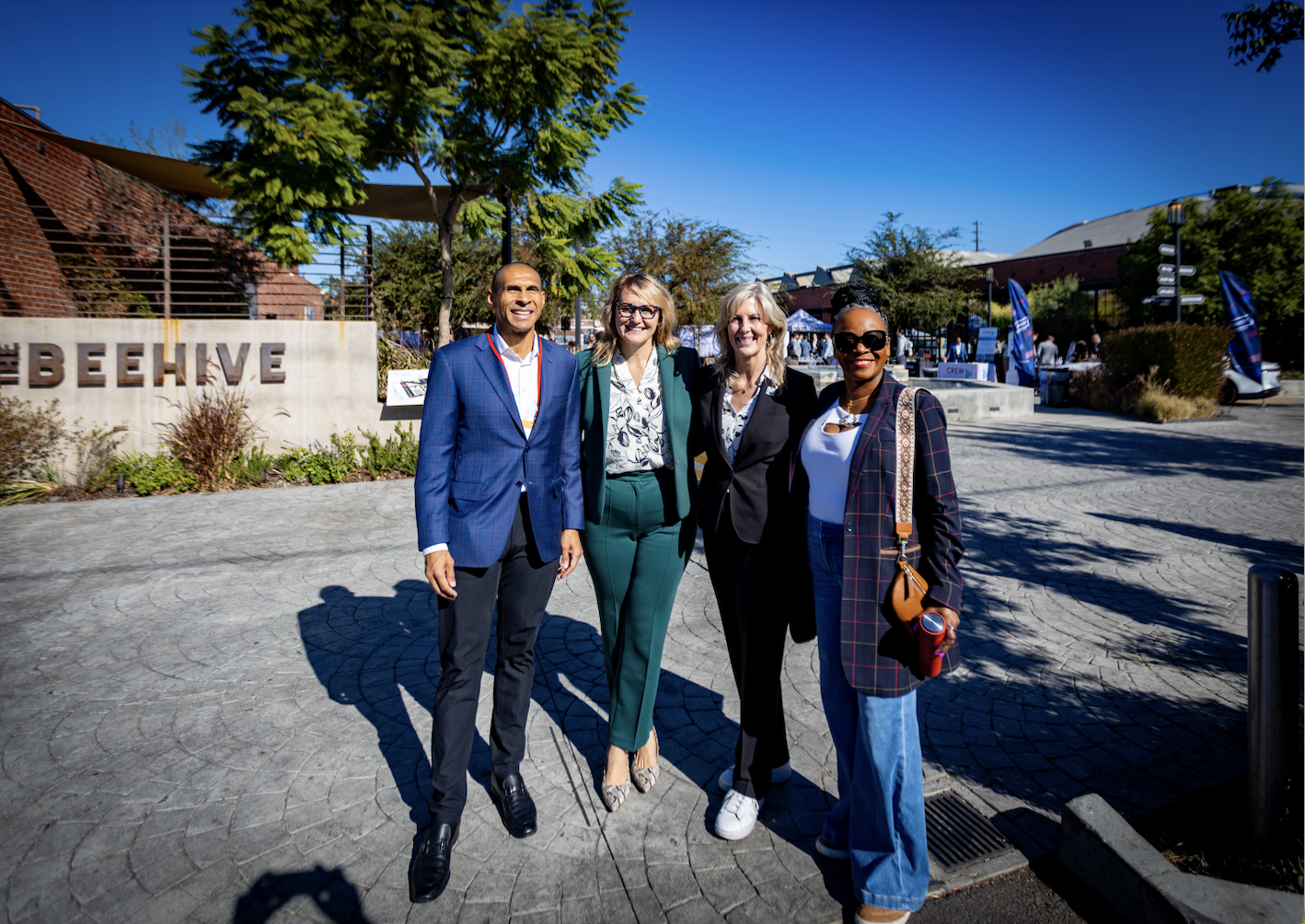- Erin Ivie
- Director of Communications, Office of Assemblymember Buffy Wicks
- 510-619-8495
- erin.ivie@asm.ca.gov

LOS ANGELES – The Assembly Select Committee on Permitting Reform, chaired by Assemblymember Buffy Wicks (D-Oakland), convened a hearing and tour today in Los Angeles to address the barriers posed by outdated permitting processes that stall infill housing and sustainable transportation projects across California. The event brought together state legislators, local leaders, business advocates and other experts, underscoring the critical need to modernize the state's permitting system.
“California’s housing shortage and transit needs are urgent, and our current permitting processes are too slow to meet the scale of the challenge,” said Assemblymember Wicks. “We cannot afford delays that stop us from building more homes and expanding sustainable transit options. It’s time to fix our permitting flaws and create a faster, smarter path to ‘yes’ on critical projects.”
The day began with a tour of The Beehive, an Opportunity Zone Business Campus led by SoLa Impact in South Los Angeles, followed by a visit to LA Metro’s Broadway Station, part of the Regional Connector project. At The Beehive, SoLa Impact leaders emphasized the significant delays caused by permitting obstacles, noting that streamlined processes would expedite the delivery of much-needed affordable housing. LA Metro officials highlighted how prolonged CEQA-related litigation delayed the Regional Connector, stressing the need for reforms to avoid similar setbacks in future transit projects.
"California can only solve its housing crisis by adding more homes; we can achieve that quickly and affordably by fixing California's permitting flaws," said Tracy Hernandez, Founding CEO of the Los Angeles County Business Federation (BizFed). "BizFed is committed to spurring all types of housing development to meet regional needs. We applaud Assemblymember Buffy Wicks for tackling this challenge head-on with an all-of-the-above approach. Let’s not be selective about the types of homes we build as families buckle under California’s ballooning cost of living."
During the hearing, stakeholders discussed the impact of outdated permitting processes on the state’s ability to meet housing and transportation goals. “You cannot subsidize your way out of scarcity, and you cannot build your way out of poverty,” said Mike Manville, UCLA Luskin School Department Chair on Housing. “We have a serious problem that is caused by insufficient housing supply, and the solution to that problem is to make it easier to build housing of all kinds.”
The first panel focused on the complexities of infill housing, highlighting the unpredictable and lengthy timelines developers face due to permitting challenges. “In other states, the [permitting] process is consistent, reliable, and predictable. Needless to say, that’s why the capital is flowing to those states — because of that reliability. Dollars are going out of California, from builders going to other markets,” said Tom Grable, President of TriPointe Homes.
The discussion then turned to sustainable transportation where panelists underscored the detrimental effects of permitting delays on transit expansion and the importance, now more than ever, for California to lead. “With the election behind us, everything we do in California now takes on the undertones of resistance and refuge,” said Laura Tolkoff, Transportation Policy Director for SPUR. “We can resist policy attacks in the courts, but we cannot be a refuge unless we have the homes and infrastructure that we need so that more people can live here freely. Our collective responsibility here is to show the rest of this country that California can get things done.”
The hearing on housing and transportation is part of the Select Committee’s broader effort to explore permitting reform across key sectors, including climate resilience and clean energy. In collaboration with the Bay Area Council Economic Institute, the Committee is conducting a comprehensive study on the cost of inaction and impact of permitting delays on critical projects.
“The message today was clear: we need to modernize our permitting system to remove barriers and unlock the development our communities desperately need,” said Assemblymember Wicks. “This is about building a resilient, inclusive future for all Californians, and we must act swiftly to get there.”
###
________________________________________
About Assemblymember Buffy Wicks:
Assemblymember Buffy Wicks represents California’s 14th Assembly District, which includes all or portions of the cities of Oakland, Richmond, Berkeley, Albany, El Cerrito, San Pablo, Pinole, El Sobrante, Hercules, Rodeo, Kensington, and Piedmont. You can learn more about Assemblymember Wicks at http://a14.asmdc.org.
About the Select Committee on Permitting Reform:
The Select Committee on Permitting Reform is dedicated to addressing and resolving California’s systemic permitting issues. By fostering bipartisan collaboration and engaging diverse stakeholders, the Committee aims to streamline regulatory frameworks to support the state's goals in housing, clean energy and climate resilience. Through these efforts, the Committee seeks to create a more efficient and equitable system that facilitates the development of critical projects while preserving the health of our environment and the well-being of California's residents.